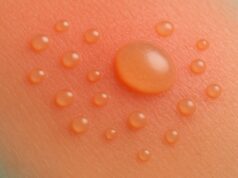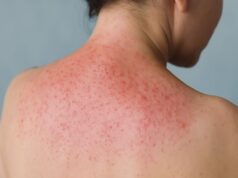The link between self-confidence and skin health is undeniable. Since the Covid-19 pandemic and the subsequent ‘Zoom Boom,’ the aesthetics industry has seen a sharp rise in the popularity and demand for bespoke skin treatments to address specific conditions.
Speaking exclusively to the Harley Street Journal, Dr Natasha Verma, a well-respected and leading aesthetic Doctor with a specialist interest in Asian skin explains why topical skin care simply isn’t enough, and bespoke combination treatments are key in effectively addressing multiple conditions.
“The Covid-19 pandemic brought the skin into razor-sharp focus for a lot of people, and I believe this was the catalyst in people seeking more bespoke, treatment packages to address their individual concerns.
For many years, the skincare industry has become over-saturated with new acids, serums and treatments all claiming to target multiple skin conditions. Whilst a good skincare regime is crucial, there is also a limit to what ‘off the shelf topical skincare can achieve.
Depending on the concern, topical skincare simply may not be enough to target and correct it. Firstly, topical skincare can only treat the epidermis, and cannot always penetrate the dermis without the help of dedicated treatment. Also, the active concentrations found within topical skincare aren’t always enough to correct.
For optimum results, especially in more complex conditions such as hair loss and dark circles, these conditions require a specifically tailored treatment, for example microneedling to target, penetrate and push medical actives into the deeper layers of skin, allowing the dermis to absorb the nutrients it needs to heal.” Says Dr Verma.
Besides being directly impacted by lifestyle and external factors, ethnicity and genetic makeup can play a pivotal role in the overall look and condition of the skin. Specialising in Asian skin, Natasha understands the differences and has worked to create bespoke effective treatment packages to target, treat and alleviate specific concerns that Asian skin types are more susceptible to.
Natasha says: “Both men and women of Asian descent are more prone to developing specific skin conditions. This is largely due to climate adaption, but pigment composition within the skin also plays a key part.
The most common concerns my patients are faced with are hair loss, dark circles, acne, scarring and hyperpigmentation. Each presents a unique challenge, but effective treatment for all starts with dermis penetration, and combination packages to suit that patient.
In aesthetics, there is no ‘one size fits all.’ Everybody is different, so each treatment plan needs to be adapted to suit the need of that individual. I work with my clients to find the right formula and tailor it to suit their needs and lifestyle. This is the most effective way to combat individual skin concerns.”
Hair Loss
Just like the skin, hair is intrinsically linked to self-confidence, and whilst hair loss can affect anybody, those of Asian ethnic background may be more prone to it.
“Due to the density and thickness of Asian hair fibres, there may be fewer hair follicles present on the scalp compared to that of a Caucasian, this as a result makes hair loss and thinning more visible. Hair thinning may also come as a result of dietary habits, and more aggressive or tighter hairstyles.
The most effective way to treat hair thinning and loss is a combination of collagen induction therapy and specially formulated growth factors to target the hair follicle and dermal papilla, or stem cells within that follicle to improve blood circulation, stimulate collagen production and encourage new hair growth.
Hair loss can be caused by a number of different reasons, so I recommend that my patients first see a GP to rule out any underlying medical conditions and identify any vitamin deficiencies.
Once any medical issues have been ruled out, I will have a consultation with my patient to better understand their hair loss, when it started, their lifestyle and home care methods. From there I can begin to formulate a treatment plan that will suit them.
In clinic, treatment will usually consist of five sessions of micro needling, infused with a special complex of hair-loving ingredients including 9 bio-identical recombinant growth factors which encourages the hair follicle to enter the anagen phase and promote healthy hair growth.
I may also recommend a 60-day course of supplements that contain bone marrow mesenchymal stem cells for follicle regeneration, combined with a specifically- formulated shampoo and conditioner that promotes hair growth.
Hyperpigmentation
“This is one of the most complex concerns to target as there can be many possible causes to address at the same time. Usually, melasma is the most common cause of hyperpigmentation and this is more commonly seen in those of an ethnic origin, especially in pregnant women. UV radiation from the sun is also a leading cause of hyperpigmentation due to cell trauma. This causes them to over-produce melanin as a defence mechanism.
The colour of the melasma depends on the skin layer affected, however regardless of its colour or extent it can significantly affect the self-confidence of the individual.
The best treatment methods for hyperpigmentation are chemical peels, and intensive facial treatments, but medical-grade topical skincare may also help improve the condition.
Chemical peels are a hugely popular non-surgical treatment that removes the most superficial layer of skin that often contains damaged cells and pigment cells. This helps to promote the natural exfoliation process, by dissolving the bonds that hold damaged skin cells together and exposing new healthy skin cells.
For my patients, I recommend a course of chemical peel treatments for the best results, but I will determine the frequency, and type of peel suitable for that patient during my initial consultation. I also offer Dermamelan and Cosmelan treatments in the clinic which remove and suppress melanin production.
Pigmentation issues can return in the future, so I would also recommend medical-grade skincare solutions to address the issue long-term. The topical treatments I often recommend are vitamin C, to brighten the skin and help repair sun damage, and Cyspera, an effective pigment corrector that contains cysteamine which when activated helps to lighten pigmentation.
My patients always ask if off-the-shelf skincare solutions can help to treat hyperpigmentation. Personally, I advise seeking a professional to identify what ingredients and products will work, because whilst some ingredients will help to support pigmentation issues, other ingredients will worsen the condition.”
Acne
Acne can be caused by a number of factors; however, some ethnicities are more prone to dairy intolerances, which may present as sensitive skin, and acne.
Now, one of the common myths surrounding acne is that it is caused by a lack of hygiene, this is untrue. Unfortunately, this myth causes people to use abrasive skincare products which strip the skin of its natural oils, resulting in an overproduction of sebum. This blocks the pores and attracts more bacteria resulting in active acne lesions.
“The first thing I do when it comes to acne is trying to identify its trigger, whether that’s hormonal changes, genetics, external or lifestyle factors. From there I can recommend a suitable treatment pathway to help control it.
There are so many off-the-shelf topical skin care products and myths surrounding acne that just don’t work and often make the situation worse. To be successful long-term, acne treatment needs to penetrate the skin to target bacteria in the pores and treat any associated scarring.
Combination treatments are among the most effective when it comes to acne treatment. They can help to penetrate the skin, target acne, and scarring, and help manage the condition in the future.
I have created a bespoke, six-step acne and scarring package which is tailored especially around the patient. After analysing the skin, I can identify exactly which steps will benefit that patient’s skin.
The possible treatment steps include LED therapy, chemical peels, micro-infusion treatments, micro needling, and skincare.
To treat active acne, I would start by prescribing a series of chemical peel treatments to clean the pores and encourage healthy skin cell turnover. Then from there, I will look at targeting any subsequent scarring.
Scarring
Scarring is part of the body’s natural healing process and can form as a result of trauma or acne. The breakdown of collagen can cause either an indentation on the skin or the formation of Type 3 collagen which results in a more fibrous appearance and texture to the skin.
Scarring in darker skin types is often more noticeable due to the change in pigmentation surrounding the scar. This can present as hyperpigmentation or hypopigmentation.
In order to treat scarring effectively, I would suggest a combination of mesotherapy, collagen induction therapy, and micro-infusion treatments. However, because everybody is different, I believe that a combination of treatments may be the best course of action in minimising the appearance of scars.
A combination package consists of chemical peels, micro needling or micro-infusion using collagen stimulating ingredients and even micro-botox (Botulinum toxin) to reduce any tension in the skin caused by scarring. Upon a thorough examination of the scar, I can advise exactly which treatments would be the most effective for the concern presented.
Dark Circles
Whilst dark circles are usually put down to tiredness, in Asian skin it may be down to the skin around the eyes is thinner, and richer in melanin causing the peri-orbital area to appear dark. The thinner skin also causes more visible blood vessels and poor circulation which again, contributes to the formation of dark circles.
“Dark circle treatment truly depends on the cause, but chemical peels, micro-circulation treatments, polynucleotides and dermal fillers are some of the treatments that have been proven to help reduce discolouration.
During my initial consultation, I first find the cause of the individual’s dark circles. From there, I can tailor a combination treatment package to suit that patient. The package may include chemical exfoliation, mesotherapy or polynucleotide injectables and specific skincare like Cyspera, but it really depends on the needs, and lifestyle of that individual.
Now, when it comes to topical skincare and daily routines, there are some staple ingredients that I highly recommend my clients incorporate into their routines to help protect their skin against some of the conditions mentioned above.
Firstly, SPF is a must to combat UVA and UVB damage which can lead to hyperpigmentation, and acne and contribute to dark circles. Next, retinol can help improve cell turnover to eliminate dead and pigmented cells. I also recommend vitamin C, not only is it a powerful antioxidant to improve the quality of the skin, but it also helps to reduce hyperpigmentation, improve collagen synthesis and boosts the overall efficacy of sunscreen.”
Before recommending any specific treatment plan, or skincare Dr Verma holds a consultation to analyse the patient’s needs and determine whether that individual would benefit from treatment.
“The first consultation is a crucial step in the treatment plan. Firstly, I need to truly understand what the patient’s concerns are and what they are hoping to achieve. From there, I can begin to formulate a treatment plan to ensure that the plan that is achievable and realistic with the patient’s best interests at heart.”
In aesthetics, the Covid-19 pandemic was a catalyst for change. Patients are no longer looking for a ‘quick fix’ for their skin concerns, instead, they are seeking for long-term effective solutions to improve skin conditions, and in turn boost self-confidence.
Dr Natasha Verma | Skin NV
Dr Natasha Verma is the founder of Skin NV, Lead Aesthetic Medical Director and a
University Undergraduate Clinical Lecturer based in London.
Having been in the aesthetics industry for almost a decade, Natasha specialises in Asian skin, and opened Skin NV in 2018 to provide her patients around the clock support, and access to more specialist skin and hair treatments and solutions.












